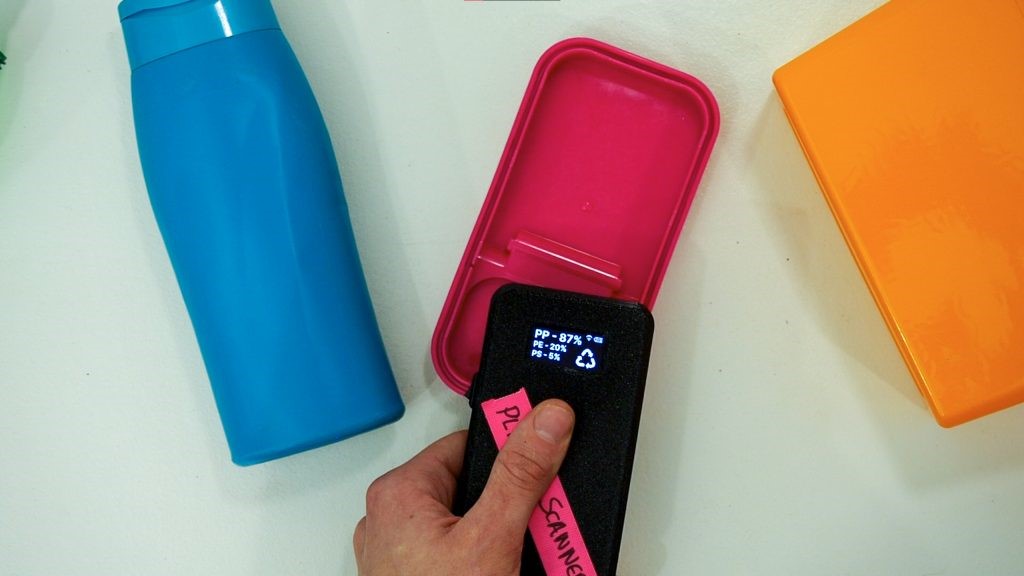“Plastic Identification Anywhere” helps informal recyclers to reduce plastic pollution
From groundwater pollution to microplastics dissemination, plastic waste is a worldwide problem, now exacerbated by our reliance on disposable plastic products used in our effort to combat the COVID-19 pandemic. While in the West we can count on centralised and often automated waste recycling plants, most low- and middle-income countries cannot. Their recycling infrastructure is often informal, and has far fewer means to ensure correct waste management especially when it comes to the sorting of plastic.
IDE student Jerry de Vos decided to tackle this issue in his Master Graduation project “Plastic Identification Anywhere”. Jerry developed a handheld plastic scanner using near-infrared spectroscopy, a technology known to be able to categorize more than 75% of the plastics used in everyday life. To make it more accessible to informal recyclers and to easily integrate it in their countries’ waste management infrastructure, he developed this device as an open-source project, whose components can be sourced and manufactured locally.
To find out about the project, take a look at Jerry’s thesis in the TU Delft’s Repository. Alternatively visit the website where you can find out about all the necessary resources and information you will need to build a handheld plastic scanner yourself.

Jan Carel Diehl
- +31 (0)15 27 89729
- J.C.Diehl@tudelft.nl
-
Room B-3-350
"To make design for the unknown known!"
Jo van Engelen
- J.M.L.vanEngelen@tudelft.nl
-
Room B-3-340
